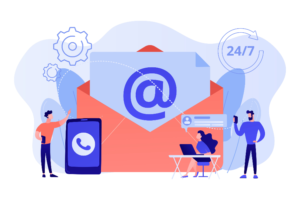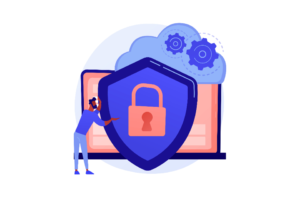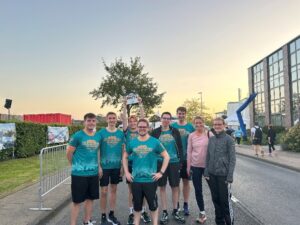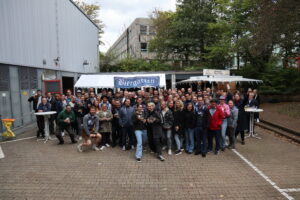Women in IT: FEMTEC Career-Building Program

Source: FEMTEC
Welcome to the third post in our blog series about women in IT. In the first post, we looked at the challenges women face in the tech industry and how they successfully overcome them. The second post was dedicated to the success stories of historical and modern women who have made significant contributions to the IT field. Today we present the FEMTEC Career-Building Program, which prepares female STEM students at RWTH Aachen University for challenging careers in business and science.
Omnichannel Telephony: Bilingualism

Source: Freepik
After around three successful years with our omnichannel system, we are taking the next step: in order to meet the modern requirements of an international university, we are making our telephone system bilingual to make communication more efficient and user-friendly. But what exactly does that mean? And what is behind our omnichannel system?
IT Center Satisfaction Survey 2024 – Your Opinion Counts!

Source: Freepik
This week our IT Center Satisfaction Survey 2024 started. This survey is aimed at all people who use the services of the IT Center.
In order to continuously improve the quality of services and support through our various communication channels, we conduct a satisfaction survey every year. The survey is anonymous.
Basics at RWTH: E-Mail

Source: Freepik
As part of our blog series “Basics at RWTH”, today we are introducing you to the RWTH e-mail service, which is essential for your daily communication in everyday university life. We have compiled the most important information for you so that you can get started quickly and easily with your e-mail inbox – if you haven’t already done so.
Types of Firewalls

Source: Freepik
In the first part of our blog series, we covered the basics of firewalls: what they are, how they work, and why they are essential for network security. Today, we will take a closer look at the different types of firewalls used in IT-Security.
11th Aachen Company Run – Not Without My (It Center) Team
Not only can we do the maths, we can also run: At the 11th Aachen company run, the IT Center once again proved its sporting prowess and even took 3rd place in the individual classification! True to the motto “We’re not just good at computing”, the running team took the opportunity this year to grow together as a team and achieve new personal bests. Read our impressions of the sporting event of the year in this article.
RWTH Welcome Week – On Site For You!
This year, RWTH Aachen University is once again welcoming new international students with the traditional Welcome Week. The events offered them an ideal opportunity to get to know the services and processes at RWTH better.
We at the IT Center were also there on September 25, 2024, as a point of contact at the Freshers’ Fair as part of Welcome Week. In this blog post, you can find out how the successful exchange with students went.
IT Center Oktoberfest 2024
On September 27, 2024, the IT Center celebrated Oktoberfest 2024, which was opened by the management with warm words. Professor Matthias Müller opened the celebration with a short speech and got the guests in the mood for the festive occasion.
A special highlight of the event was the tribute to Daniel Bündgens, who celebrated his 25th anniversary of service. With warm words, congratulations and a small gift, he was honored for his many years of loyalty and commitment to the IT Center.
Welcome to the Winter Semester 2024/2025!

Source: Pixabay
How can time pass so quickly that we are already seeing each other again for the new winter semester? Or that we are meeting for the first time.
Whether “old” or “new” – we would like to welcome you all to the winter semester 2024/2025.
Studying has become much more digital in recent years. Laptops, tablets and smartphones have become indispensable.
Are you already connected?
Today is World Smile Day

Source: Freepik
Smile, please! Today is World Smile Day. We would like to take this day as an opportunity to motivate you to give your fellow human beings or strangers an honest and sincere smile on this day. In this article, you will learn more about the background of World Smile Day and inspiring wisdom about smiling.







